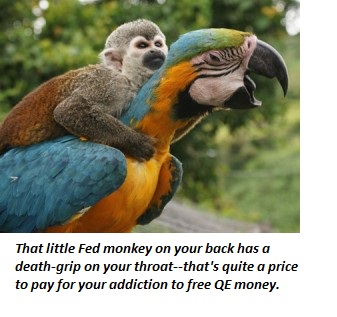As this country becomes more advanced, we will need a more specialized and intelligent work force. Data has been showing for years that education pays in America and there is a growing problem with uneducated, unskilled laborers. Too many with not enough jobs. One way you can put them to work is through infrastructure development projects or other public sector jobs. The fact we are cutting jobs in the public sector during bad economic times is ridiculous. Apparently our current Congress didn't learn anything in college because no one with even the tiniest level of economic knowledge would support our current policies. In fact, adults over the age of 25 with a bachelors degree or higher have a 4% unemployment rate. The government needs to look at the past and continue doing what worked for the past century. Hire people to build America. Everything would be solved. Obstruct and blame is their new motto!!
http://finance.yahoo.com/news/widest-earnings-gap-college-grads-172803584.htmlWASHINGTON (AP) -- The earnings gap between young adults with and without bachelor's degrees has stretched to its widest level in nearly half a century. It's a sign of the growing value of a college education despite rising tuition costs, according to an analysis of census data released Tuesday.
Young adults with just a high-school diploma earned 62 percent of the typical salary of college graduates. That's down from 81 percent in 1965, the earliest year for which comparable data are available.
The analysis by the Pew Research Center shows the increasing economic difficulties for young adults who lack a bachelor's degree in today's economy that's polarized between high- and low-wage work. As a whole, high-school graduates were more likely to live in poverty and be dissatisfied with their jobs, if not unemployed.
In contrast, roughly nine in 10 college graduates ages 25 to 32 said that their bachelor's degree had paid off or will pay off in the future, according to Pew's separate polling conducted last year. Even among the two-thirds of young adults who borrowed money for college, about 86 percent said their degrees have been, or will be, worth it.
"In today's knowledge-based economy, the only thing more expensive than getting a college education is not getting one," said Paul Taylor, Pew's executive vice president and co-author of the report. "Young adults see significant economic gains from getting a college degree regardless of the level of student debt they have taken on."
The latest findings come amid rising college tuition costs, which have saddled young adults in the so-called Millennial generation with heavy debt amid high unemployment. Noting the increasing importance of a college education, President Barack Obama and Republicans such as Sen. Marco Rubio of Florida have pushed proposals to make higher education more affordable as a way to promote upward mobility and bolster America's shrinking middle class.
The report found that not only does a college degree typically yield much more inflation-adjusted earnings than before, but a high-school diploma also is now worth less. That adds to a widening earnings gap that Pew researchers found mirrors the U.S. gap between rich and poor.
For instance, college graduates ages 25 to 32 who were working full time now typically earn about $17,500 more annually than employed young adults with just a high school diploma ($45,500 vs. $28,000); those with a two-year degree or some college training earned $30,000. In 1965, before globalization and automation wiped out many middle-class jobs in areas such as manufacturing, the inflation-adjusted gap was just $7,449.
Meanwhile, median earnings for high-school graduates have fallen more than $3,000, from $31,384 in 1965 to $28,000 last year.
Young adults with just high-school diplomas now are also much more likely to live in poverty, at 22 percent compared to 7 percent for their counterparts in 1979.
"Despite their higher levels of college completion, today's young adults overall are doing no better — and on many key indicators of economic well-being, they're doing worse — than older generations were doing when they were the same age that Millennials are now," Taylor said. "This is mainly because the economic penalties for not getting a college degree are so much stiffer now than in the past."


















